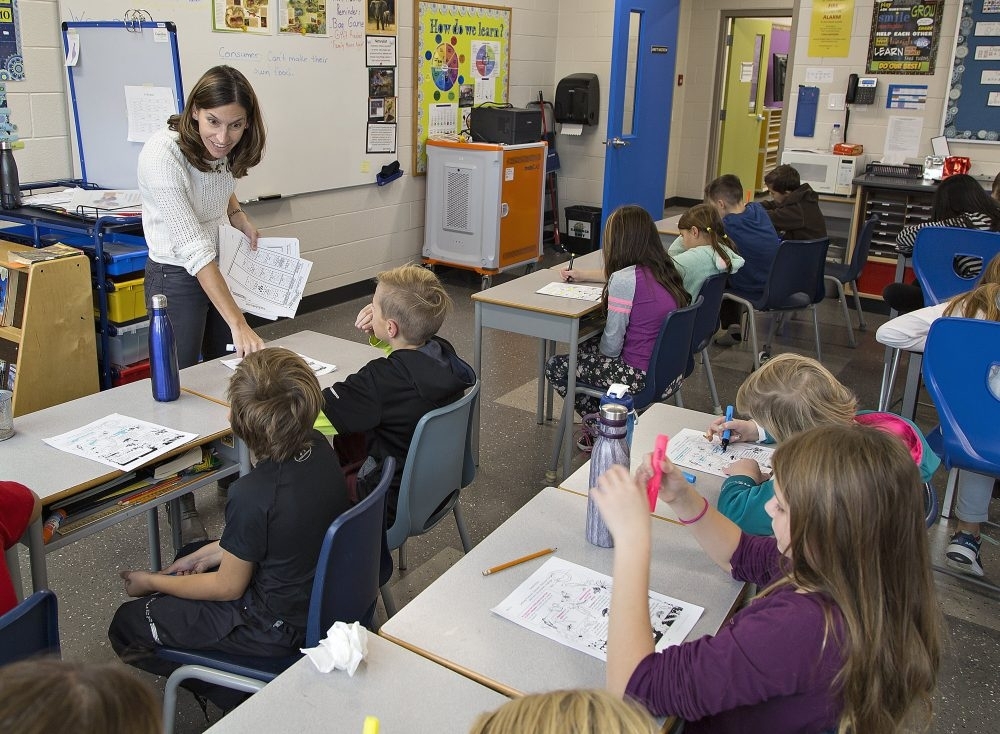Education
Winnipeg Parents Demand a Voice in School Curriculum Changes

The back-to-school season typically brings excitement for students and parents alike, but in Winnipeg, it has become a period marked by frustration and confusion over educational content. Many families feel increasingly marginalized in discussions about their children’s education, particularly regarding what is being taught in public schools. Parents are expressing growing concerns that they lack meaningful input on curriculum decisions, which they believe should reflect community values and perspectives.
Concerns Over Curriculum Content
Public education is intended to serve the community, yet many parents in Winnipeg feel sidelined. The curriculum has become a battleground for divisive issues, including Indigenous history, gender identity, and sexual education. Key decisions are often made in closed meetings by school boards or provincial education departments, with families receiving updates only after changes are finalized. A 2023 Fraser Institute survey highlighted this discontent, revealing that 70 percent of Canadian parents desire more input, while only 30 percent feel included in the decision-making process.
One of the most contentious changes involves the teaching of Canadian history. Current educational materials are being revised to prioritize discussions around historical injustices such as residential schools and systemic discrimination. While these topics are crucial, parents worry that this approach may lead to a distorted understanding of Canada’s complex history, emphasizing negative aspects over a balanced view that promotes critical thinking.
Rising Enrollment in Alternative Education Options
As dissatisfaction with public school policies grows, many families are opting for alternative education pathways. In Manitoba, private school enrollment increased by 12 percent between 2018 and 2023, while homeschooling has surged by nearly 20 percent. Parents cite a lack of consultation and concerns over ideologically driven curricula as primary reasons for withdrawing their children from public schools. This trend reflects a broader issue of trust and transparency in the education system.
Historically, parents played a more active role in curriculum updates through town halls and public consultations, especially during the 1980s and 1990s. Parents had opportunities to engage with educators, ask questions, and provide feedback, fostering a sense of accountability. The current situation, characterized by decisions made behind closed doors, has left many feeling frustrated and powerless.
Teachers also face challenges in this environment, as they must navigate politically charged discussions without sufficient support. It is essential to recognize that parental involvement does not equate to controlling the classroom; rather, it fosters a partnership that enhances educational outcomes. Open dialogue, advisory committees, and review panels can serve as effective strategies to integrate family perspectives into the educational process.
Several U.S. states have successfully implemented parental review panels, demonstrating that family engagement and rigorous academic standards can coexist. The implications of excluding parents from the educational discourse are significant. When trust erodes, public school enrollment declines, and community ties weaken.
As the new school year commences this September, parents in Winnipeg and across Manitoba are urged to advocate for their right to be heard in decisions affecting their children’s education. The current discussions around curriculum content are critical, as they shape not only the knowledge students acquire but also the values they carry into the future. To foster a thriving educational environment, schools must prioritize transparency and collaboration with families.
The future of public education hinges on the ability to include parents in meaningful ways, ensuring that decisions are made openly and reflect the diverse perspectives of the community. While curriculum debates are inevitable, fostering inclusive dialogue is essential for building trust and supporting students effectively.
-

 Education4 months ago
Education4 months agoBrandon University’s Failed $5 Million Project Sparks Oversight Review
-

 Science5 months ago
Science5 months agoMicrosoft Confirms U.S. Law Overrules Canadian Data Sovereignty
-

 Lifestyle4 months ago
Lifestyle4 months agoWinnipeg Celebrates Culinary Creativity During Le Burger Week 2025
-

 Health5 months ago
Health5 months agoMontreal’s Groupe Marcelle Leads Canadian Cosmetic Industry Growth
-

 Science5 months ago
Science5 months agoTech Innovator Amandipp Singh Transforms Hiring for Disabled
-

 Technology5 months ago
Technology5 months agoDragon Ball: Sparking! Zero Launching on Switch and Switch 2 This November
-

 Education5 months ago
Education5 months agoNew SĆIȺNEW̱ SṮEȽIṮḴEȽ Elementary Opens in Langford for 2025/2026 Year
-

 Education5 months ago
Education5 months agoRed River College Launches New Programs to Address Industry Needs
-

 Business4 months ago
Business4 months agoRocket Lab Reports Strong Q2 2025 Revenue Growth and Future Plans
-

 Technology5 months ago
Technology5 months agoGoogle Pixel 10 Pro Fold Specs Unveiled Ahead of Launch
-

 Top Stories4 weeks ago
Top Stories4 weeks agoCanadiens Eye Elias Pettersson: What It Would Cost to Acquire Him
-

 Technology3 months ago
Technology3 months agoDiscord Faces Serious Security Breach Affecting Millions
-

 Education5 months ago
Education5 months agoAlberta Teachers’ Strike: Potential Impacts on Students and Families
-

 Business1 month ago
Business1 month agoEngineAI Unveils T800 Humanoid Robot, Setting New Industry Standards
-

 Business5 months ago
Business5 months agoBNA Brewing to Open New Bowling Alley in Downtown Penticton
-

 Science5 months ago
Science5 months agoChina’s Wukong Spacesuit Sets New Standard for AI in Space
-

 Lifestyle3 months ago
Lifestyle3 months agoCanadian Author Secures Funding to Write Book Without Financial Strain
-

 Business5 months ago
Business5 months agoNew Estimates Reveal ChatGPT-5 Energy Use Could Soar
-

 Business3 months ago
Business3 months agoHydro-Québec Espionage Trial Exposes Internal Oversight Failures
-

 Business5 months ago
Business5 months agoDawson City Residents Rally Around Buy Canadian Movement
-

 Technology5 months ago
Technology5 months agoFuture Entertainment Launches DDoD with Gameplay Trailer Showcase
-

 Top Stories4 months ago
Top Stories4 months agoBlue Jays Shift José Berríos to Bullpen Ahead of Playoffs
-

 Technology5 months ago
Technology5 months agoWorld of Warcraft Players Buzz Over 19-Quest Bee Challenge
-

 Top Stories3 months ago
Top Stories3 months agoPatrik Laine Struggles to Make Impact for Canadiens Early Season










